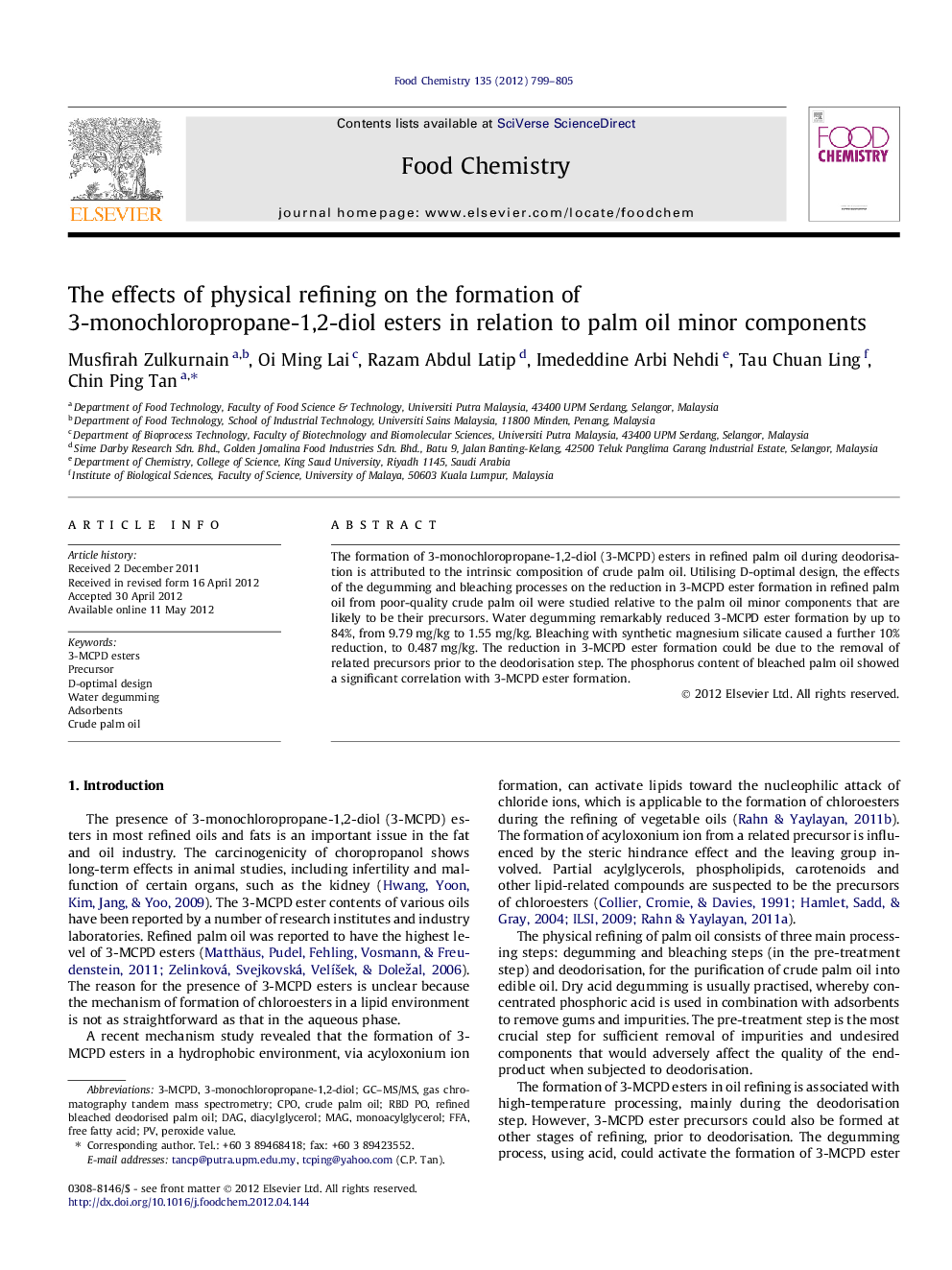| Article ID | Journal | Published Year | Pages | File Type |
|---|---|---|---|---|
| 1185789 | Food Chemistry | 2012 | 7 Pages |
The formation of 3-monochloropropane-1,2-diol (3-MCPD) esters in refined palm oil during deodorisation is attributed to the intrinsic composition of crude palm oil. Utilising D-optimal design, the effects of the degumming and bleaching processes on the reduction in 3-MCPD ester formation in refined palm oil from poor-quality crude palm oil were studied relative to the palm oil minor components that are likely to be their precursors. Water degumming remarkably reduced 3-MCPD ester formation by up to 84%, from 9.79 mg/kg to 1.55 mg/kg. Bleaching with synthetic magnesium silicate caused a further 10% reduction, to 0.487 mg/kg. The reduction in 3-MCPD ester formation could be due to the removal of related precursors prior to the deodorisation step. The phosphorus content of bleached palm oil showed a significant correlation with 3-MCPD ester formation.
► CPO quality determines the level of 3-MCPD esters in PO during deodorisation. ► Strong correlation between bleached PO’s phosphorus and level of 3-MCPD esters. ► Water degumming reduces chloroester during deodorisation. ► Combination of magnesium silicate and activated clay can reduce 3-MCPD ester.
